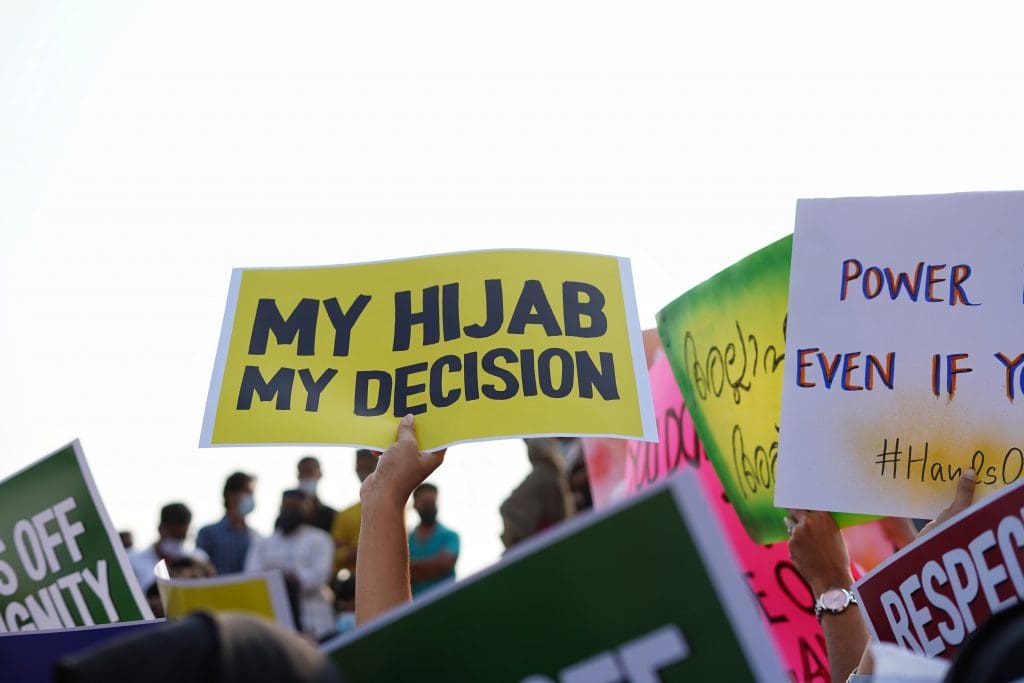
“The Karnataka Government has a constitutional responsibility to respond to the continuing violations of fundamental rights of young Muslim women,” the Karnataka chapter of People’s Union for Civil Liberties (PUCL), a human rights group, said in a press statement on Monday.
The outfit also released a report titled “Closing the Gates to Education: Violations of Rights of Muslim Women Students in Karnataka’s Educational Institutions”. The report documents the impact of the de facto imposed ban on the hijab in educational institutions.
It foregrounds the testimonies of Muslim women students across the state, who experienced harassment, humiliation and isolation when the sudden ban was imposed.
“The split verdict of the Supreme Court delivered on October 13, 2022, has only prolonged the students’ wait for justice. The matter was placed before the Hon’ble Chief Justice to constitute an appropriate Bench on that date. There is an urgent need for the matter to be taken up expeditiously as Muslim women students continue to be denied their constitutional right to education, dignity and privacy,” the readout said.
The hijab ban in Karnataka, which drew international attention, began with six students in a girls-only Udupi school who were arbitrarily denied entry into their classrooms in December 2021.
The report says that the Education Department, Government of Karnataka, issued a misleading order in February, indicating that the hijab can be restricted in some educational institutions. When some of the affected students approached the court, in Resham v. State of Karnataka, the Karnataka High Court issued an interim order and a final verdict that upheld a prohibition on the hijab.
“Even though the verdict does not issue a directive to institutions to impose a sweeping ban with immediate effect, in one stroke, educational institutions across the state banned the hijab. Hijab-wearing Muslim women students were forced to choose between continuing their education and wearing the hijab.”
According to the findings, Muslim women students were not only actively prevented from accessing their right to education, but also bore the brunt of a climate of hate, hostility and misinformation.
“Students have faced humiliation and harassment in their own classrooms at the hands of their faculty, college administration and classmates.”
The report documents how vigilante groups of Hindutva organisations carried out a vilification campaign against hijab-wearing students and how the inaction of the government and police gave implicit encouragement to these fundamentalist forces.
The report elaborates on the ways in which Muslim women students were denied their right to education, by being forced to stay out of the classrooms. Students have also recounted their experiences of loss, broken dreams and career aspirations, discrimination, segregation from other non-hijab wearing students and their feeling of fear and insecurity within the campuses of their colleges.
“Many students shared that being forced to remove the hijab made them feel naked in public. Students felt extremely vulnerable to further targeted attacks of hate and harassment.”
Testimonies reveal that the right to a personal choice was seized from Muslim women students. Students also shared how they were placed under the hostile gaze of the media which displayed many of their names and images on television and the internet.
PUCL also accused the media of playing an active role in spreading inflammatory statements about the hijab and the protesting Muslim women students.
“The TV media’s coverage, especially Kannada TV media constantly pushed a dominant narrative that stereotyped Muslim students and grossly violated their Constitutional rights as well as the media’s codes of ethics,” Chapter seven of the report stated.
The analysis of the High Court judgment finds that the order “incorrectly focused on the question of the hijab as an Essential Religious Practice (ERP) and ignored the more immediate question surrounding the practice, which is whether students have a right to express themselves through the practice and what powers does the state have to regulate their form of expression.”
The chapter also elaborates on the Supreme Court’s split verdict in Aishat Shifa vs. State of Karnataka and critically examines both judgements. Justice Hemant Gupta’s judgement upheld the hijab prohibition, on the basis of a definition of secularism as one that requires a forced invisibilisation of identities.
While not denying that wearing the hijab is a fundamental right, he opined that it can be restricted on the grounds of discipline.
Justice Sudhanshu Dhulia’s judgement is imbued with a constitutional concern for the rights of girl students to equal access to education. He holds that discipline cannot be at the cost of dignity and autonomy. While he set aside the Karnataka High Court verdict and quashed the Government Order of February 5, remains a split verdict.
The report also details specific recommendations towards authorities, state machinery and other sections of society to address the human rights violations that have resulted from the suspension, order and judgements.



